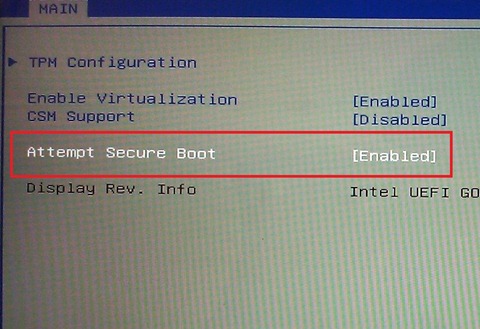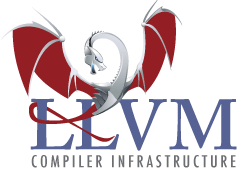The Linux foundation announced Yocto Project Release 1.1 today. This release codenamed “Edison” and based on Poky 6.0 is the the second release of the project, one year after it was announced in October 2010 to provide developers with greater consistency in the software and tools they’re using across multiple architectures for embedded Linux development. The Yocto Project reached the following milestones during the last year: Alignment of OpenEmbedded technology and the inclusion of OpenEmbedded representation in the Yocto Project governance structure. The projects share a common core that consists of software build recipes and core Linux components that prevent fragmentation and reinforce the OpenEmbedded methodology as an open standard for embedded Linux build systems. Contribution of tools and technologies such as Cross-prelink, EGLIBC, Pseudo, Shoeleather Lab (for automated testing) and Swabber have been contributed from Intel, Mentor Graphics, MontaVista Software and Wind River. Commercial adoption with examples such as […]
Online Petition Requesting to Allow Linux Installation on Windows 8 Devices
Back in September, some concerns emerged about UEFI secure boot requirement for Windows 8 and its possible consequences on Linux and other open source operating systems: it may be impossible to install such systems on computers or devices shipped with Windows 8, either by replacing Windows 8 or in a dual boot installation as the bootloader (UEFI) would prevent such installation for security reasons. Microsoft has already replied to those concerns and stated that: At the end of the day, the customer is in control of their PC. … We work with our OEM ecosystem to provide customers with this flexibility. The security that UEFI has to offer with secure boot means that most customers will have their systems protected against boot loader attacks. For the enthusiast who wants to run older operating systems, the option is there to allow you to make that decision. So there should be an […]
LLVM (Low Level Virtual Machine) Compiler Infrastructure
The Low Level Virtual Machine (LLVM) is a compiler and toolchain infrastructure, written in C++, designed for compile-time, link-time, run-time, and “idle-time” optimization of programs written in arbitrary programming languages. Originally implemented for C/C++, LLVM is now used with a variety programming languages such as Python, Ruby and may others. Code in the LLVM project is licensed under the “UIUC” BSD-Style license. LLVM can be used to replace and/or supplement the GNU tools such as gcc, g++, gdb, etc… LLVM now consists of a number of different sub-projects including: The LLVM Core libraries provide a source- and target-independent optimizer, along with code generation support for many popular CPUs. These libraries are built around a well specified code representation known as the LLVM intermediate representation (“LLVM IR”). The LLVM Core libraries are well documented, and it is particularly easy to invent your own language (or port an existing compiler) to use […]
Open Source Licenses Overview: GPL, LGPL, Apache, BSD,…
The great thing about open source code is the large amount of high quality code that is available and many embedded projects use FOSS code as it really speeds up development time. What is not often taken into account are the licenses for the code. Many companies often simply ignore licenses issues and some even go one step further by obfuscating the code to work around dual license issues or to hide the use of a particular open source library. Even though history shows that few companies get sued due to open source license infringements and release of open source code modified in commercial projects often requires the community involvement, open source licenses should still be taken into consideration as the risk still exists. I’ll give an overview of open source licenses in this blog post, as well as recommendation on how to keep your proprietary code closed. Definition of […]
Embedded Linux Conference Europe 2011
Embedded Linux Conference Europe (ELC-E 2011) will take place on October 26 – 28, 2011 at Clarion Congress Hotel in Prague, Czech Republic. The event will be co-located with LinuxCon Europe 2011 and GStreamer Conference. The day before the official opening of the conference, two tutorials will be offered on Tuesday 25th of October:b Outside the Box: An Introduction to Embedded Linux and Hardware Interfacing Using the Snowball Board – 9:00 – 17:00 – Trainer: Chris Simmonds – Cost: 350 USD. Embedded Android Workshop – 9:00 – 17:00 – Trainer: Karim Yaghmour- Cost: 300 USD. ELCE consists of 3 days of presentations, tutorials and sessions. There will be over 50 sessions during those 3 days. I’ll highlight a few sessions that I find particularly interesting. October 26 10:45 – 11:45 – Linaro’s Android Platform by Zach Pfeffer, Linaro Android Platform team leader. Linaro uses components from the Android Open Source […]
Android Developer Conference: DroidCon 2011 Schedule
DroidCon UK will be held for two days (October 6th & 7th 2011) at the Islington Design Center in London and boasts to be United Kingdom’s largest Android-only developer conference. Here’s the program for day 1 (6th of October): 9:00 Barcamp Talks will be selected by attended among the following proposals: From Publisher to Platform – the role of OpenSource in engaging with developers by Oscar Clark, Papaya Mobile. Reality of Mobile Advertising by Terence Eden, Inmobi. OpenGLES2 & Android QEMU Emulator by Jonathan White and Jose Commins, Accenture. Enhancing User Experience with HTC: 3D, Pen, and Audio Lance Nanek, HTC. Cisco Workshop by Marcus O’Sullivan, Cisco. OpenGL & NDK by Ashraf Hegab, Orange. Fed up with trying to make pay per download pay back? Try API revenue share by James Parton, o2. (Re)Branding Headache? Here’s your Pain Killer by Joana Cruz e Costa, Masabi. Smooth and User Friendly UI […]
Embedded MasterClass Conference Schedule in Cambridge, UK
Embeded MasterClass will take place in Cambridge on the 5th of October 2011. This conference will give you the chance to meet with embedded systems engineers from many of the world’s leading vendors and you’ll be able to attend presentations and workshops free of charge. Here’s the presentations’ schedule for the event: Time Stream 1 Stream 2 8.30 – 9.30 Tea/Coffee – Meet the Exhibitors 9.30 – 10.15 1: Leveraging the Performance of Intel® Architectures in low power, fan-less solutions with the latest Intel® Atom™ processor-based platform. Regis Cheval CEng MIET, Intel® Atom™ Platform Application Engineer – Intel 10.30 – 11.15 2: Proving your code quality. Barry Lock – Lauterbach 3: Developing reliable embedded systems using COTS and custom processors. Michael Pont, CEO – TTE Systems 11.15 – 11.45 Coffee and Exhibition 11.45 – 12.30 4: Strategic Research Agenda. Helen Finch – Artemis and Infineon 5: Safely from Conception to […]
Select an ARM MCU during Development with Atollic TrueSTUDIO for ARM
Atollic has released the latest version of TrueSTUDIO development tool for ARM, a C/C++ development tool for embedded developer that looks similar to Eclipse. It supports micro-controllers from a number of semiconductor manufacturers, making it possible to switch MCU supplier during the design process. This release of TrueSTUDIO supports several ARM MCU cores such as ARM7, ARM9, Cortex-M0, Cortex-M1, Cortex-M3 and Cortex-M4 processors. It also includes device-specific support for an extensive list of ARM processor-based micro-controller families, including: Atmel AT91SAM, EnergyMicro EFM32, Freescale Kinetis, Fujitsu FM3, STMicroelectronics STM32, Texas Instruments Stellaris and Toshiba TX. As well as an optimizing C/C++ compiler and a multiprocessor-aware debugger, the tool also has serial wire viewer tracing, graphical UML diagram editors for model-based design and architecture, performs code-quality analysis via TrueINSPECTOR and TrueANALYSER and features a test-automation toolbox (TureVERIFIER). There is also an ECLIPSE-based IDE with editor, x86 C/C++ build and debug tools for development of […]









